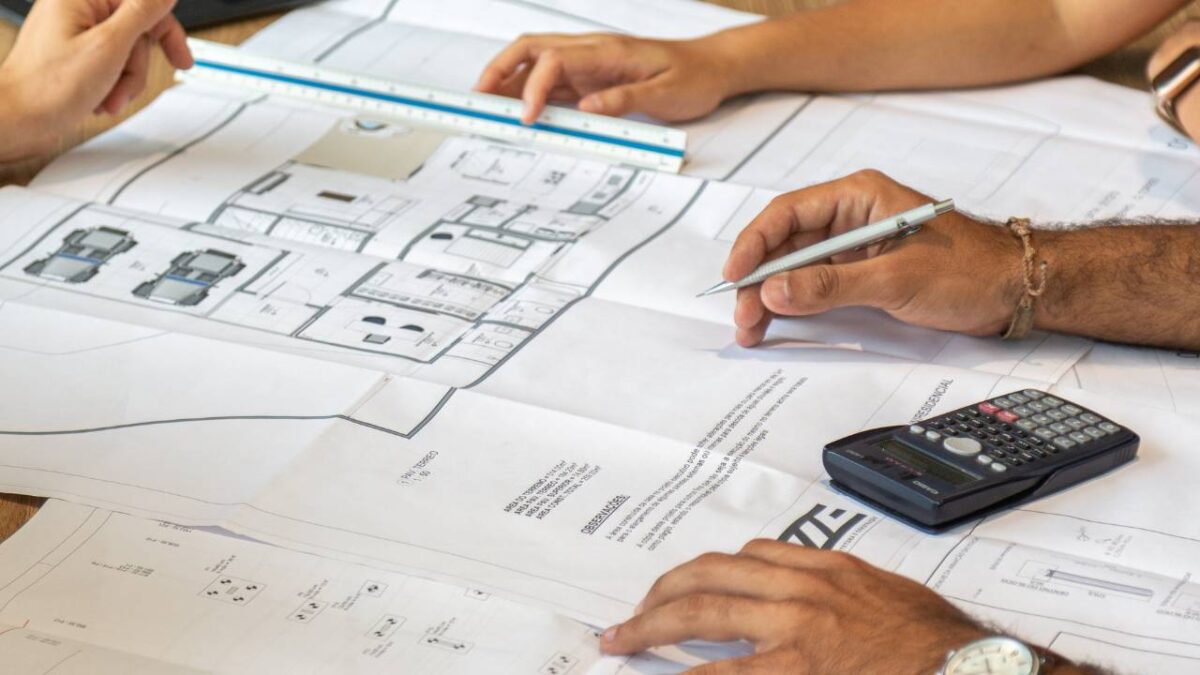In the dynamic business world, hosting successful events is essential for creating lasting impressions and achieving your goals. As a budding professional, you might wonder how to design a business event that engages your audience and fosters meaningful connections. Look no further, as we’re delving into the strategic art of business event design that’ll help you craft events like a pro.
Art and Strategy behind Event Design
In business, event design is crucial in creating memorable experiences that align with your strategic goals. As you plan your next event, it’s essential to understand the art and strategy behind event design.
Dialogue between Event Design and Management
Effective event design begins with a robust dialogue between design and management. This ensures that your creative ideas connect seamlessly with your management objectives. It is essential to engage in clear communication regarding the following points:
- Strategic goals – Define the goals you want to achieve through your event and ensure they align with your business objectives. This will guide the design process and ensure consistency throughout.
- Target audience – Identify your target audience and tailor your event design to their preferences. This will help you create an experience that resonates with your attendees and supports your strategic goals.
- Budget and resources – Outline the budget and resources available to host your event. A successful event design balances creativity with financial constraints while remaining resourceful in the process.
Event Planning and Organization

When it comes to event planning, the key to success lies in your ability to organise and manage resources effectively. In this section, we will focus on how you can access and utilise resources, and implement a project plan and action for a successful business event design.
Accessing and Utilising Resources
To create an outstanding event, you need to gather and utilise various resources. You can start by identifying your event’s objectives and then determine the resources you need to achieve them. Consider partnering with specialist conference, exhibition, and event production companies like Vinehall to gain access to their expertise and professional services.
Another essential resource is your team. Delegate tasks effectively, making sure each team member clearly understands their role and responsibilities. Collaboration tools, such as project management software, can help track progress, streamline communication, and improve efficiency.
Implementing a Project Plan and Action
A well-structured project plan is crucial to keep your event planning on track. Begin by setting realistic goals and deadlines, then work out a detailed timeline for the entire process. This plan should include an overview of all key tasks, such as venue booking, budget management, marketing, and securing suppliers.
To ensure smooth execution, create an action plan outlining the specific steps for each task, and set deadlines for completion. Regularly monitor progress and make adjustments as needed. Consider using the following tools to support your project plan:
- Gantt charts – These visual representations of a project schedule can help you monitor progress and identify potential bottlenecks.
- Budget trackers – These tools help you keep an eye on your expenses and ensure you stay within the allocated budget.
- Checklists – Detailed task lists can help you and your team stay on top of each aspect of the event planning process.
Effective Event Marketing Strategy
Importance of Marketing in Events
In the world of business events, effective marketing plays a crucial role in reaching the right audience and increasing attendance. With a well-developed event marketing strategy, you can connect with potential attendees, create engaging experiences, and ultimately, make your event a success.
To boost your event’s visibility, focus on leveraging various channels such as social media, email marketing, and content marketing. It’s essential to research the interests and preferences of your target audience and tailor your marketing messages accordingly. By understanding what attracts attendees and expresses the value of your event, you will maximise its impact.
Deploying the Right Marketing Team
Assembling a skilled and dedicated marketing team for your event is vital to effectively promote your event and achieve your goals. Here are some elements to consider when building your team:
- Skills and expertise – Look for team members who possess a wide range of marketing skills, such as copywriting, data analysis, social media management, and event planning. This diversity ensures that your marketing efforts are more comprehensive and effective.
- Communication and collaboration – Your marketing team should be able to communicate and collaborate efficiently. Encourage regular meetings, updates, and open channels of communication to foster a positive work environment where everyone is on the same page.
- KPIs and measurable outcomes – Set clear objectives and key performance indicators for your team, including targets related to ticket sales, attendee satisfaction, and brand awareness. This will keep your team focused on achieving measurable results.
Experience Design and Its Impact

Designing Event Experience
When planning a business event, you need to consider the overall experience you provide your attendees. Experience design is the process of creating a memorable and engaging atmosphere by strategically shaping each touchpoint. To create a successful event, think about every aspect, such as the venue, content, interaction, and even the lighting and sound.
Here are a few tips to enhance your event experience:
- Choose the right venue – Location plays a vital role in setting the mood. Pick a venue that complements your theme and aligns with your brand personality.
- Develop engaging content – Create presentations and workshops that encourage audience participation. Remember to incorporate various learning styles to cater to everyone’s needs.
- Encourage networking – Facilitate meaningful connections between attendees through activities like roundtable discussions.
- Pay attention to details – Small touches, like comfortable seating or pleasing scents, can elevate the overall event experience.
Brand Experience through Events
Events are an excellent way to showcase your brand, so you must think about how your event design impacts brand experience. When attendees have a positive experience, it influences their perception and loyalty towards your brand.
Consider these aspects while designing your event:
- Consistency – Keep the design of your brand consistent throughout the event. This includes colours, logo placement, and even the tone of the staff.
- Quality – Ensure that everything from the venue to the food portrays high quality to communicate your brand’s values.
- Emotion – Evoke emotions through storytelling and sensory experiences. A memorable event is more impactful on brand perception.
- Meaningful interactions – Provide opportunities for attendees to interact with your products or services, allowing for personal connections with your brand.
Infusing Technology and Data into Events
Leveraging Technology in Event Design
In today’s world, technology plays a crucial role in hosting corporate events. As a planner, you can incorporate various tech tools to create an engaging and memorable event. For instance, using augmented reality for product demonstrations or implementing virtual reality for immersive experiences can elevate your event design.
Live streaming of your event allows remote attendees to participate, thus expanding your audience reach. By investing in a mobile app, you offer your attendees a platform to interact, receive updates, and access important event details.
Role of Data in Ensuring Successful Events
Data is pivotal in determining the success of your event and improving future ones. By analysing data, you can gain valuable insights into your attendees’ behaviour, preferences and engagement levels. Moreover, data-driven decisions ensure success, as they are based on factual information rather than intuition.
Utilise feedback surveys to gain a better understanding of your attendees’ needs. This information will help you tailor your event design in the future accordingly. In addition, analysing your event’s social media engagement can provide you with insights into what aspects resonated with your audience.
Importance of Stakeholder Engagement

Engaging stakeholders plays a vital role in the success of your business event design. When you actively involve all the relevant parties, you can create an event that caters specifically to their needs and preferences. This collaboration fosters teamwork, innovation, and valuable connections for your business.
Role of Stakeholders in Events
Stakeholders are the individuals or groups that have an interest in your event or are directly affected by it. These may include sponsors, attendees, suppliers, and even the local community. Stakeholders have the power to lend credibility to your event, provide financial and logistical support, and ensure a positive overall experience for everyone involved.
To maximise the potential of your business event, make sure to:
- Identify your key stakeholders – Keep in mind their interests and the goals they hope to achieve at the event.
- Involve stakeholders in the planning process – Encourage their input and updates to ensure the event caters to their needs.
- Maintain open communication channels – Keep stakeholders informed of progress, address their concerns, and build trust throughout the process.
Building Effective Stakeholder Relationships
A crucial part of stakeholder engagement is building strong relationships. When you cultivate these connections, you’ll work more productively as a team and achieve better outcomes in your events. Here are some tips for building effective stakeholder relationships:
- Understanding stakeholder needs – Listen to their concerns and do your best to accommodate them in the event design.
- Transparent communication – Be upfront about your expectations, share progress updates regularly, and address any issues that arise.
- Value-driven approach – Align your event with the goals and values of your stakeholders to ensure mutual benefits.
- Feedback and improvement – After the event, gather feedback from stakeholders on their experiences, and use this to improve future event designs.
The Future of Events: Virtual and Hybrid Events
Adapting to Virtual Events
Due to the Covid-19 pandemic, the event industry has undergone a major transformation. Virtual events have become the new normal, allowing people to stay connected online. Adapting to this new reality is important for your business event design strategy, as it allows you to reach a wider audience and leverage technology.
To enhance engagement, design your future corporate events in a way that encourages interaction among attendees. Utilise chat functions, live Q&As, and polls during presentations so participants can share their thoughts and opinions. Also, ensure that your event platform is user-friendly and accessible on different devices.
Maximising Engagement in Hybrid Events
Hybrid events, which combine in-person and virtual components, are gaining popularity as a flexible and convenient solution to the challenges posed by Covid-19. To maximise engagement in hybrid events, it’s crucial to create a seamless experience for both in-person and virtual attendees.
- Offer parallel activities – Design activities that cater to both in-person and virtual participants, balancing the experience for all attendees.
- Interactive tools – Utilise virtual features such as live polls, chat rooms, and virtual breakout sessions to keep remote attendees engaged and connected.
- Broadcast quality – Make sure your online streaming has high-quality audio and video, as well as adequate bandwidth for a smooth experience.
Conclusion
When you want to elevate your business event, focusing on strategic design can make all the difference. Planning every aspect with a clear purpose and being attuned to your audience’s needs will help you create an experience that resonates with attendees and achieves your business objectives.
As you apply the principles discussed above, you’re well on your way to establishing stronger connections and yielding great results for your business.






